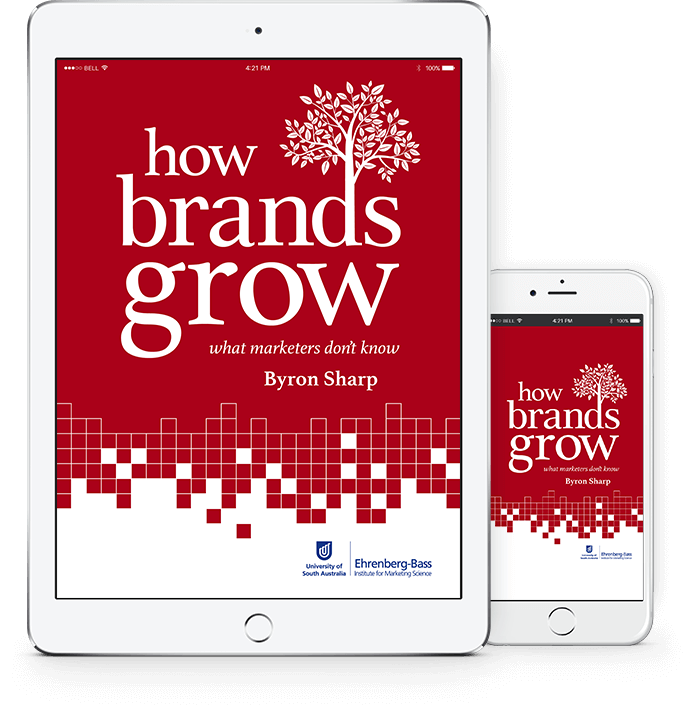
28th of July 2017

Why you won’t find Ehrenberg-Bass talking about mass awareness
The popularity of the Ehrenberg-Bass Institute’s work means its complex ideas are often reduced to sound bites. Associate Professor Rachel Kennedy explains how the institute’s messages can be misinterpreted.
Yesterday, John Douglas wrote an opinion piece entitled: The problem with blindly jumping on the Ehrenberg-Bass bandwagon. I would like to thank him for taking the time to highlight issues and to praise our work at the Ehrenberg-Bass Institute.As one of those women John says control 85% of purchases (and I do control most purchases for my household), let me say I’m all for ads that give me an emotional response.However, as with John’s article, some of our messages can be misinterpreted. So, I want to clarify our position on some issues raised:
You won’t find us talking about mass awareness.
What we do advocate is mental availability, building and refreshing mental structures – this is different to awareness, and vitally important.
We do advocate targeting. Smart targeting.
We don’t simply promote targeting everyone with every communication – there is lots of number crunching and planning to be done to get scale reach.
Advertising creativity matters enormously.
Good copy drives sales. It is hard to produce such winning copy, but creativity should be a top priority for marketers.
All brand ads also need to be easily recognisable by distracted audiences – there are many other ways to do this creatively than just making the logo bigger. However, we do see money wasted on poorly branded ads with small logos.
Emotional response to copy matters – for women and for men.
It increases the chance that the advertising will work by building or refreshing relevant memory structures.
This helps brands to be remembered and considered for purchase. It is vital to get the short-term response and build memories for the long-term.
You must reach beyond current buyers if you want to grow your brand.
We encourage marketers to know the numbers that are relevant to their category (e.g. who buys the category) and to be as inclusive of category buyers as they can be (i.e. within the available budget).
Missing out men will rarely to be a growth strategy – even fathers and boyfriends have to buy tampons sometimes (so brands like Libra and Tampax should try and be easy to buy, even for such disinterested shoppers).

So, should we target copy to specific audiences (e.g. women)?
Marketers need to invest in great copy that drives as many sales as possible (over the long term). Rather than imagining if tweaked copy can be more effective, we promote robust measurement of the response that different copies receive (e.g. via split cable experiments, single source data), which allows marketers to be evidenced-based in these decisions.
Ideally what we want to be producing are campaigns that are broadly appealing (e.g. nudge the whole market). This saves us producing lots of different copy allowing more of our budget to be put into people seeing our copy.
That said, there are times when different copies are needed for different audiences (e.g. if a large part of the market speaks Chinese then reaching those people with Chinese copy is likely to be sensible). We are yet to see evidence that gender targeting leads to a better total uplift. If you have any, we would love to see it.
On a final note, I agree with John that implementation of the science is a challenge distinct from understanding the discoveries.
We are trying to document the impact that marketers have (cases where implementation of the science has worked well, as well as anywhere it has failed). We would be pleased to hear from anyone who is happy to share the impact they have got from applying the knowledge we have shared.
Associate Professor Rachel Kennedy is one of the founders of the Ehrenberg-Bass Institute, and an advertising researcher with 20 years’ experience.
The Institute’s Director, Professor Byron Sharp will present the keynote at this year’s Mumbrella MSIX – Marketing Science Ideas Exchange – conference in November. Earlybird tickets are now on sale via this link.





